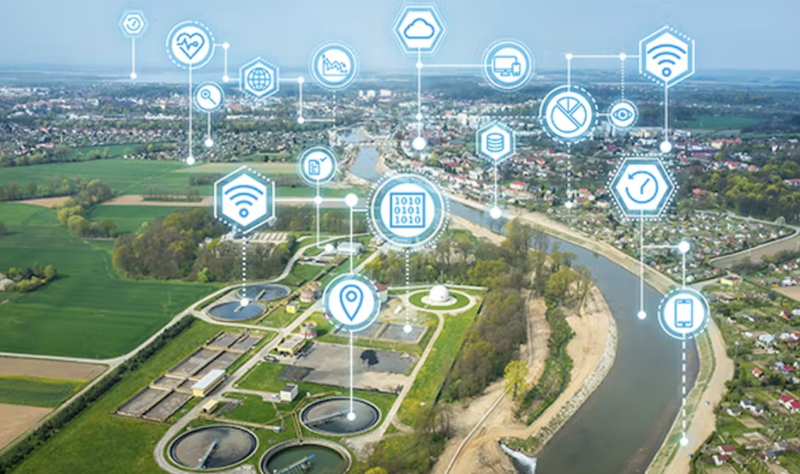How instrumentation is transforming water/wastewater operations
Published on by Water Network Research, Official research team of The Water Network in Business
How instrumentation is transforming water/wastewater operations
Sept. 21, 2022
A Control Amplified podcast with Endress+Hauser’s Nick Hanson, national industry manager for water and wastewater

Keith Larson: With all the attention being given to the climate change aspects of sustainability, it's sometimes easy to overlook the growing importance of sustainability when it comes to conserving the world's increasingly constrained supplies of freshwater. Industry is among the largest consumers of fresh water, and many global manufacturers have identified water scarcity as a significant risk factor to continuing operations. To answer this challenge operators of both municipal and industrial water and wastewater treatment systems are in the midst of their own transformations, from often vulnerable run to fail operations to smarter optimized systems driven by the effective integration and analysis of data from the field on up.
Hello, my name is Keith Larson, publisher of Control magazine and ControlGlobal.com, and you're listening to a Solution Spotlight edition of our Control Amplified podcast, sponsored this week by Endress+Hauser. To discuss this ongoing transformation of our water/wastewater infrastructure, I'm happy to be joined today by Nick Hanson, national industry manager for water and wastewater with Endress+Hauser here in the US.
Welcome, Nick, a real pleasure to talk with you today. Thanks for joining me.
Nick Hanson: Yeah, thanks for having me. I'm very excited to be here.
Larson: Well, as a leader in the process instrumentation marketplace, what opportunities is Endress+Hauser seeing in the water/wastewater industry?
Hanson: Yeah, so there's growth happening, that's for sure. The marketplace for water wastewater, I would say is a evolutionary one, not a revolutionary one. So, any growth that you might see is incremental, but in terms of kind of the largest opportunities right now, there's been a big focus placed on modular, decentralized type treatment operations. Kind of getting away from putting all of our eggs in one basket with like a local municipality treatment plant. You know, we've seen instances where plants get overran or if a natural disaster occurs, that one facility that supplies water to thousands upon thousands of residents suddenly becomes compromised. Like that's a big issue. So yeah, I would say even just as it pertains to the economies of scale and reaching more people with clean water, both for drinking and for treating waste, just having a modular approach seems to fit the bill and is really taking off. So, from like, OEM partners of ours, we've been seeing large uptick in that kind of business. And not to say that the local municipalities and the centralized treatment processes aren't being updated as well, they are, but it's kind of a, it's an evolution, like I said, there's a lot happening.
Attached link
https://www.youtube.com-nocookie/embed/Pa4bmcPxkJATaxonomy
- Process
- Process Instrumentation
- Process Control
- Process Engineering
- Process Engineering & Project Management
- Process Control
- Process Manufacturing
- Process Design And Facilitation